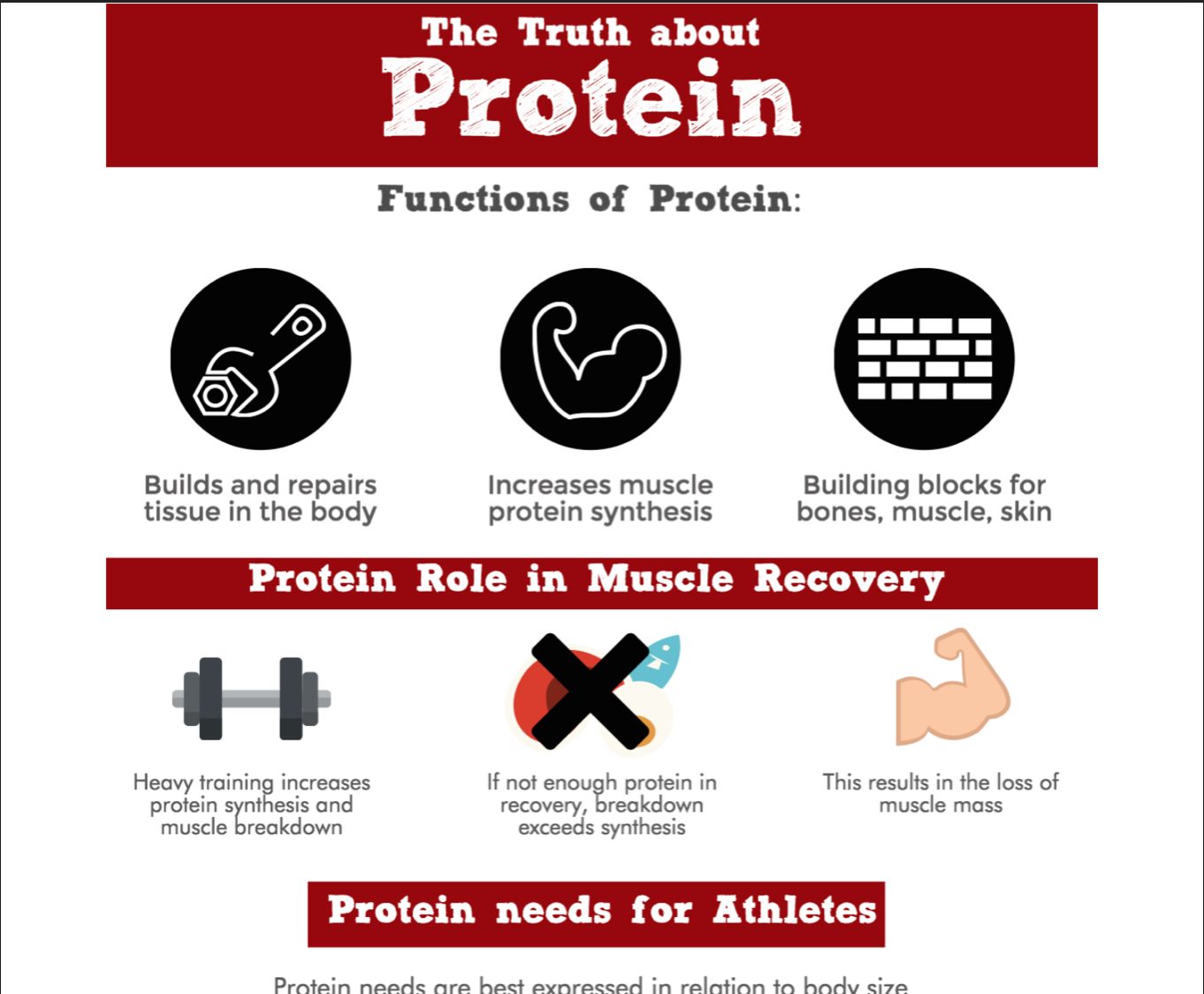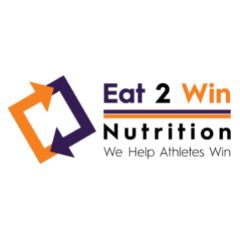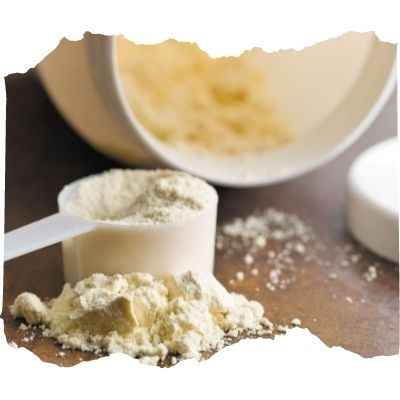Protein Supplementation and Athletic Performance
Protein Supplementation and Athletic Performance
Protein’s role in athletic performance has caught the attention of athletes from all skill levels. At MSD, we’ve heard a variety of claims from athletes, including: “eating more protein increases muscle size,” “protein supplementation makes me stronger,” or “adding protein gives me more energy.” All of these statements are completely false if you’re already eating enough protein. But how much is enough? In this blog post, we’ll discuss the functions of protein and the key takeaways you need to know about how this nutrient can help you as an athlete. Lastly, we’ll also discuss how much protein YOU need daily to achieve your goals.
What’s the Function of Protein?
- Metabolism – When we eat protein, our body burns more calories than when we eat carbohydrates or fats. This is due to protein having a higher thermic effect - that is, it takes slightly more energy for the body to break down protein than it does to break down carbs or fat. Be sure to include a quality source of protein at every meal to keep your metabolism charged and ready to go.
- Satiety (Fullness) – Have you ever finished a meal and felt like you could immediately eat another? Your meal might’ve been lacking in the protein department. Routine, protein-rich meals are an important tool for promoting satiety, especially if you are trying to drop body fat or get leaner. When you eat a balanced meal containing protein, fat, and fiber, these 3 dietary components work together to stabilize your blood sugar and keep you fuller for longer.
- Repairing Muscle Tissue – After an intense exercise session, particularly a strength training session, our muscle tissue begins to break down - this is known as catabolism. Research has demonstrated that consuming a source of protein combined with carbohydrate within 30-60 minutes post-workout improved strength, reduced muscle soreness and inflammation, increased muscle fiber size, and protein synthesis (rebuilding of muscle tissue).
- Hormonal Changes – Adequate protein intake can increase the release of the hormone glucagon. The release of glucagon counteracts the effects of insulin, facilitating the fat-burning process.
Whole Food Protein, Whey Protein, and Casein Protein
Athletes frequently ask “What is the biggest difference between protein from chicken, beans, or a nutrition shake?” The answer? Absorption rates. Research has demonstrated that whole food protein sources are absorbed slower than a liquid protein shake containing Whey Protein. Whey protein is a fast-acting protein that quickly elevates blood amino acid levels for 3-4 hours after consumption. The best times to consume whey protein are when you wake up, immediately before exercise, and within 30-60 minutes after a strength training session. Casein Protein is a slow-acting protein that slowly elevates blood amino acid levels for 6-8 hours after consumption. Casein protein is best consumed before bed to minimize the amount of protein your body uses while you rest. Foods like cottage cheese and milk are good sources of Casein Protein.
Protein’s Use in Athletic Performance
First and foremost, you want to make sure you’re eating a meal including a protein source every 3-4 hours. To take your performance to the next level be sure you’re consuming protein around your workouts to maximize muscle growth and recovery. The best way to do this is to consume a source of protein, preferably in liquid form, within 30-60 minutes after your workouts.
Testing and Safety of Protein Powders
Athletes also commonly ask about the best brand of protein powder to maximize muscle growth and recovery. Since I work with collegiate and professional athletes, my primary focus is to make sure they are taking 3rd party tested products. Why? This ensures their supplement does not contain any banned ingredients that may trigger a positive drug test. Yes, even protein powders can contain banned ingredients! A study conducted by Informed Choice (a 3rd party testing lab) found that 25% of 58 protein powders tested positive for steroids. Another 11% of products tested positive for stimulants that weren’t listed on the label.
To ensure your product has been 3rd party tested, be sure to visit one of the following websites from the top agencies in the United States:
NSF - www.nsfsport.com
Informed Choice – www.informed-choice.org
Banned Substance Control Group – www.bscg.org
How Much Protein Do You Need?
We’ll break this down into 2 different types of athletes - strength and endurance athletes. Athletes who lift weights on a regular basis (3-4 days/week) may need slighly more protein than those who do not.
For Strength Athletes: (lift weights 3 or more days/week) – 0.8 grams/pound of body weight/day
Example: 200 lb athlete = 200# x 0.8-1.0g protein/#BW/day = 160-200 grams of protein/day
For Endurance Athletes: (mainly cardio-based training sessions) – 0.6 grams/pound of body weight/day
Example: 150 lb athlete = 150# x 0.6-0.8g/#BW/day = 90-120 grams of protein/day
Download Infographic

Links and Resources
- Increasing Protein for Athletes
- Dietary Supplement University
- Informed Choice Certified: Trusted by Sport
- Supplements: Do I Really Need Them?
- Drug Supplement Testing in Sports
- Optimizing Protein Intake for Athletes
- High Protein Diet in Athletes
- Sports Nutrition for Power Athletes
- Dietary Supplements and Athletic Performance
- Supplement Industry and Supplement Safety



Facebook comments